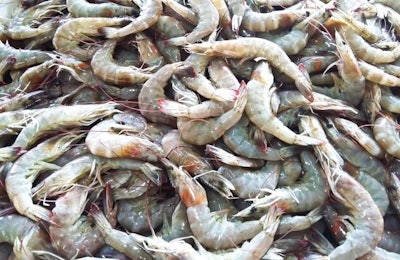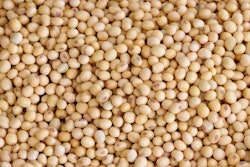
Cargill has introduced a new precision shrimp feed that it says will revolutionize the shrimp industry.
The new feed, called iQuatic, is made for use with automated feeders using acoustic technology. Through this acoustic technology, the automatic feed dispensers use microphones to detect when shrimp are eating, enabling the system to deliver more precise amounts of food when shrimp are hungry, according to the company.
In the past, shrimp farmers would feed shrimp by hand a couple of times per day. But research has shown that shrimp can feed more often and at almost any time of day, said Adel El-Mowafi, Cargill global technology director for aqua, in an interview with WATTAgNet.
“That changes the whole industry, even how we make the feed,” El-Mowafi said.
Shrimp feed used in the past was made to be stable in water for several hours, which can compromise nutrient quality and feed composition. The new feed does not need to be as stable because the shrimp eat it right away, and therefore is more digestible and has an increased feed efficiency.
“We’re just responding to the natural behavior of the animal that we didn’t understand before,” El-Mowafi said. “It’s a simple innovation, but return on investment will be unlimited.”
Financing for equipment
Automated feeders are needed to use the iQuatic feed, but not all shrimp farmers can afford to switch to the feeders. For that reason, Cargill offers financing to farmers so they can switch to the automatic feeders.
“Return on investment will be extremely high,” El-Mowafi said. “That will be a game-changer for the shrimp industry.”
Along with the equipment financing and feed offering, Cargill also provides data analytics and technical service.
“Our main role here is to come up with tailor-made feed to use with this equipment and analyze the data,” El-Mowafi said.
Cargill says iQuatic feed results in a 15 to 20 percent improvement in feed conversion and a 20 percent increase in survival rate, up to 90 percent.
iQuatic will be available in Central and South America in the next few months.
















